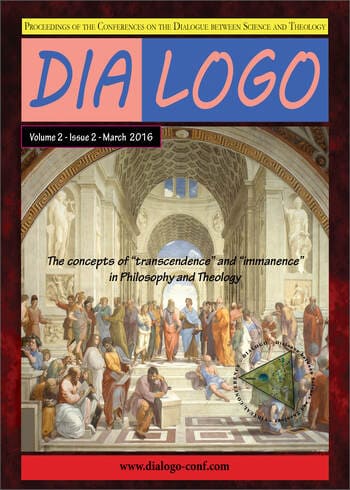Transcendence and Transcending in the Theology of Father Dumitru Staniloae
Transcendence and Transcending in the Theology of Father Dumitru Staniloae
Author(s): Grigore Dinu MoşSubject(s): Christian Theology and Religion, Theology and Religion, Eastern Orthodoxy
Published by: EDIS- Publishing Institution of the University of Zilina
Keywords: transcendence;(self-)transcending;transcendental;person;holiness;mystery;cross;hope;love;
Summary/Abstract: From the perspective of man’s relation to the transcendent God, a central concept in the thought of father Dumitru Stăniloae is that of “transcending”, of self-transcendence, of man going beyond himself towards his neighbors and towards his deeper self, towards the mystery of the world and of existence in general, culminating with the fundamental act of transcending towards the divine Absolute. He uses this concept in almost all areas of theology: gnoseology, anthropology, cosmology, ecclesiology, mysteriology, eschatology, spirituality, as well as when discussing ideas of important existentialist and personalist philosophers of the 20th century. According to Stăniloae, God’s transcendence reveals itself as holiness, while Christ, the God-Man, who makes possible man’s convergent and unitary act of transcending, is the “true transcendence”. The real correspondence between transcendent and transcendental emphasizes the Christological foundation of Christian anthropology. For father Stăniloae, man’s self-transcendence is determined by his attraction towards the divine Absolute, as well as by his lack of fulfilment in this world. Monotony is defined as the absence of transcendence, hell – as the impossibility of transcending, and pride as a negative and delusive transcendence. The mystery is a sign of the Transcendent, while man is characterized by an endless act of transcending towards his own mystery, enlightened by the mystery of God. Words and logoi are means of transcending which urge us to purify our mind and to act immediately. The necessity and meaning of the act of transcending are emphasized by the image of the Cross, which makes the world transparent, revealing its Creator. According to Stăniloae, man is a being which transcends time through repentance and hope, while the Church is the immanent which incorporates the transcendent. Moreover, he sees the Holy Sacraments as steps in the act of transcending from the sphere of the created to the uncreated Absolute throughout the course of our life on earth and theological virtues (faith, hope and love) as acts of transcending through which man anticipates and foretastes eternal life. Love is, for the Romanian theologian, the supreme act of transcendence, which brings man the gift of perfection and the plenitude of happiness.
Journal: Dialogo
- Issue Year: 2/2016
- Issue No: 2
- Page Range: 111-122
- Page Count: 12
- Language: English

